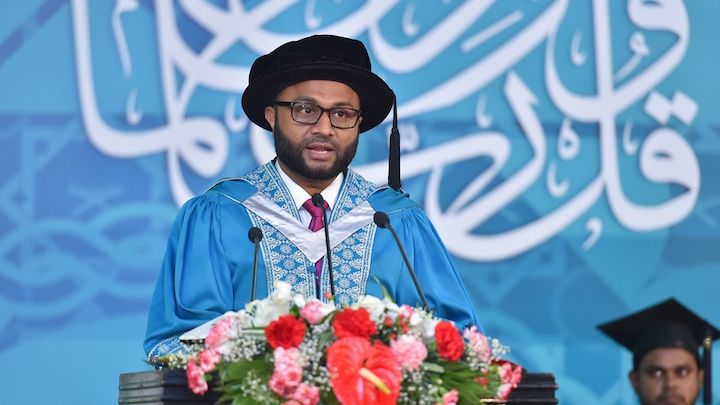Ex-Islamic minister defends scholars after Afrasheem murder report
Differences of opinion with the moderate scholar were purely academic, Shaheem said.

19 Nov 2019, 09:00
Former Islamic minister Dr Mohamed Shaheem has defended local clerics after a presidential commission concluded that Dr Afrasheem Ali was killed in October 2012 by an extremist group affiliated with al-Qaeda.
The group believed Afrasheem was guilty of blasphemy as well as mocking Islam and declaring forbidden activities as permissible, the commission found, prompting criticism of clerics and religious conservative groups that had been at odds with the moderate scholar.
“Maldivian Islamic scholars will not encourage killing anyone. The conflicting views among scholars are purely scholarly disputes similar to other academic disciplines,” Dr Shaheem tweeted after the investigation report was released on Sunday. “During my time as minister, I tried to minimise conflicts among scholars, bring them to the same page and create an environment of dialogue. I did a lot of work to reform the ideologies of extremist people,” he added.
Become a member
Get full access to our archive and personalise your experience.
Already a member?
Discussion
No comments yet. Be the first to share your thoughts!
No comments yet. Be the first to join the conversation!
Join the Conversation
Sign in to share your thoughts under an alias and take part in the discussion. Independent journalism thrives on open, respectful debate — your voice matters.




